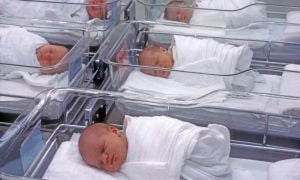Sometimes you just have to take a step back and appreciate the theater of politics. Labour’s first budget under Chancellor Rachel Reeves took center stage recently, sparking both applause and protests from various factions across British society. While some parts of the media, not to mention the International Monetary Fund (IMF), heralded it as ‘sustainable’ and ‘a fresh start’, many working-class people are left wondering if the script has truly changed, or if they’re simply hearing the same old story repackaged with different words.
During her budget address, Reeves, the first woman to hold the title of Chancellor of the Exchequer, emphasized the importance of dreams and ambitions for girls and young women. She spoke passionately about breaking ceilings and empowering women. Yet for those living on the financial edge, such words can feel painfully ironic. Many girls are currently grappling with the realities of life under tight budgets, facing the harsh impact of policies like the two-child benefit cap, which are still firmly maintained under this new Labour regime, leaving families to navigate dire poverty.
Pensioners, too, might have rolled their eyes at her remarks, especially after hearing the term ‘tough decisions’ repeated like some tired mantra. For many of them, the winter will bring real dilemmas—whether to heat their homes or eat. This stark reality is worlds apart from the comfortable existence of cabinet members, with Reeves pulling down £163,000 annually, and her husband, who works as a high-ranking civil servant, earning around £200,000. Together, they reside comfortably within the country’s top 1% of earners, making it hard to fathom just how tough those ‘tough decisions’ are for the average Brit.
But what about the good news? Some hoped the budget would mark the beginning of brighter days. There was talk of increasing state pensions and raising the minimum wage from £11.44 to £12.21 by April 2025. Yet, it's worth noting this still sits well below the Trades Union Congress (TUC)’s demand for £15 per hour. How can one label progress when the numbers still fail to meet the cost of living? TUC General Secretary Paul Nowak hailed Reeves for supposedly acting decisively, but many question whether mere figures suffice to justify such claims, especially with the scaling back of benefits aimed at low-income families.
The Joseph Rowntree Foundation has calculated the sobering reality: average families could find themselves £770 poorer within the next year. What’s more, the grim forecast suggests nearly 100,000 more children could slip below the poverty line. After enduring years of Conservative austerity, many are left wondering if the new regime is merely continuing the old narrative of neglect for the working class.
Turning to the public services they hold dear, there were good intentions voiced by Reeves for NHS funding but once again, appearances can be deceiving. She claimed to earmark £22.6 billion for the NHS, which may sound like good news. On closer inspection, this translates to just a 3.4% increase—a figure, as pointed out by The Economist, which falls merely to what’s considered ‘normal’ after decades of increases. With NHS waiting lists climbing to over 7.5 million, one must question how this budget will even scratch the surface of current needs.
Reeves’ promises for schools paint a less rosy picture as well. She indicated plans for what seemed like significant investment—$6.7 billion, or 19% more than previous levels. Yet, Daniel Kebede, the National Education Union’s general secretary, rightly pointed out this is just scratching the surface of the £40 billion cut from school capital expenditure since 2010. Are we really witnessing genuine investment or just more smoke and mirrors?
Further complicity enters the discussion when talking about public spending. The £1.3 billion touted by Reeves was inadequate to even stand still—much less to lift local services from their impending cuts. Councils across England and Wales face staggering shortfalls estimates set at £4.3 billion. Curiously, plans for ‘affordable housing’ were merely pledges to build up to 5,000 homes. Anyone familiar with the housing crisis knows how little this actually contributes to the pressing need for accessible and affordable living, contrasting the desperate cry for comprehensive reforms to truly tackle the housing shortage.
Let’s not forget the Budget's significant silences. Although Reeves established expenditure caps for different sectors, she somehow managed to gloss over the growing concern surrounding Higher Education funding. Despite universities edging closer to bankruptcy, not one extra penny was allocated for teaching costs, leaving them to grapple with their own budgetary nightmares.
History books might soon suggest this budget marks the dawn of New Labour’s austerity era, mirroring the devastating measures seen previously but painted with different brush strokes. Whether Reeves is remembered as the Chancellor who truly empowered women or as one who exacerbated working-class struggles entirely relies on how she is willing to navigate the choices before her.
After years of Tory rule, people had hoped Labour would change things for the masses. Instead, Keir Starmer made it clear from the beginning: his party would govern as ‘changed Labour’. This means sweeping aside the anti-austerity principles championed by Jeremy Corbyn. This budget serves as evidence of commitment to representing British capitalism rather than the people it claims to support. The grim economic reality suggests the UK is lagging behind, with predictions showing GDP per head lagging 29% lower than it would otherwise be without the 2007-08 recession, making it the worst performer among G7 economies.
Labour's management style is crystal clear—they'd rather juice the best they can without instituting necessary reforms. The notion of discovering some ‘black hole’ is hard to swallow for many, seeing as the consequences of previous Tory policies were made evident long before they took office. Cuts, tax increases, and borrowing aren't exactly surprising developments. If anything, those might just deepen the current crisis.
Instead of placing extra taxes on the wealthy, Labour has turned toward the working-class to shoulder the burden of the nation’s fiscal shortcomings. While Reeves seemed to find relief with the minimal tax increases on larger businesses, they are tantamount to no more than simple window dressing. The lack of any serious plan, say many, shows the government’s reluctance to hold the rich accountable.
All these developments have stirred the trade unions, which are grappling with the future of their negotiations. At the TUC Congress held earlier, it was agreed to assess whether Labour legislative actions match their promises, particularly within the first 100 days. If not, calls for reevaluation and planning would be made, prompting collective action among workers. This sentiment might soon inspire workers to organize and reevaluate their strategies moving forward.
To make matters even more complex, proposals languishing unnoticed include the government’s intention to reform the student fee system. This is, of course, not reflected within the confines of the budget itself—an eerie reminder of the precarious situation students are already grappling with. The specter of increased fees looms large, possibly compounding existing pressures on students aiming for higher education.
British society stands at the precipice, facing potential hardships under Labour’s new budget. While the leadership holds tightly to the economic helm, many are asking if this government will truly deliver on their promises. The catchphrase of 'hope' can no longer be merely dismissed as political jargon—it's the lifeline for those at the heart of this narrative. Will Labour facilitate the change they promised, or has it merely repackaged the same old story for yet another act of political theater?



